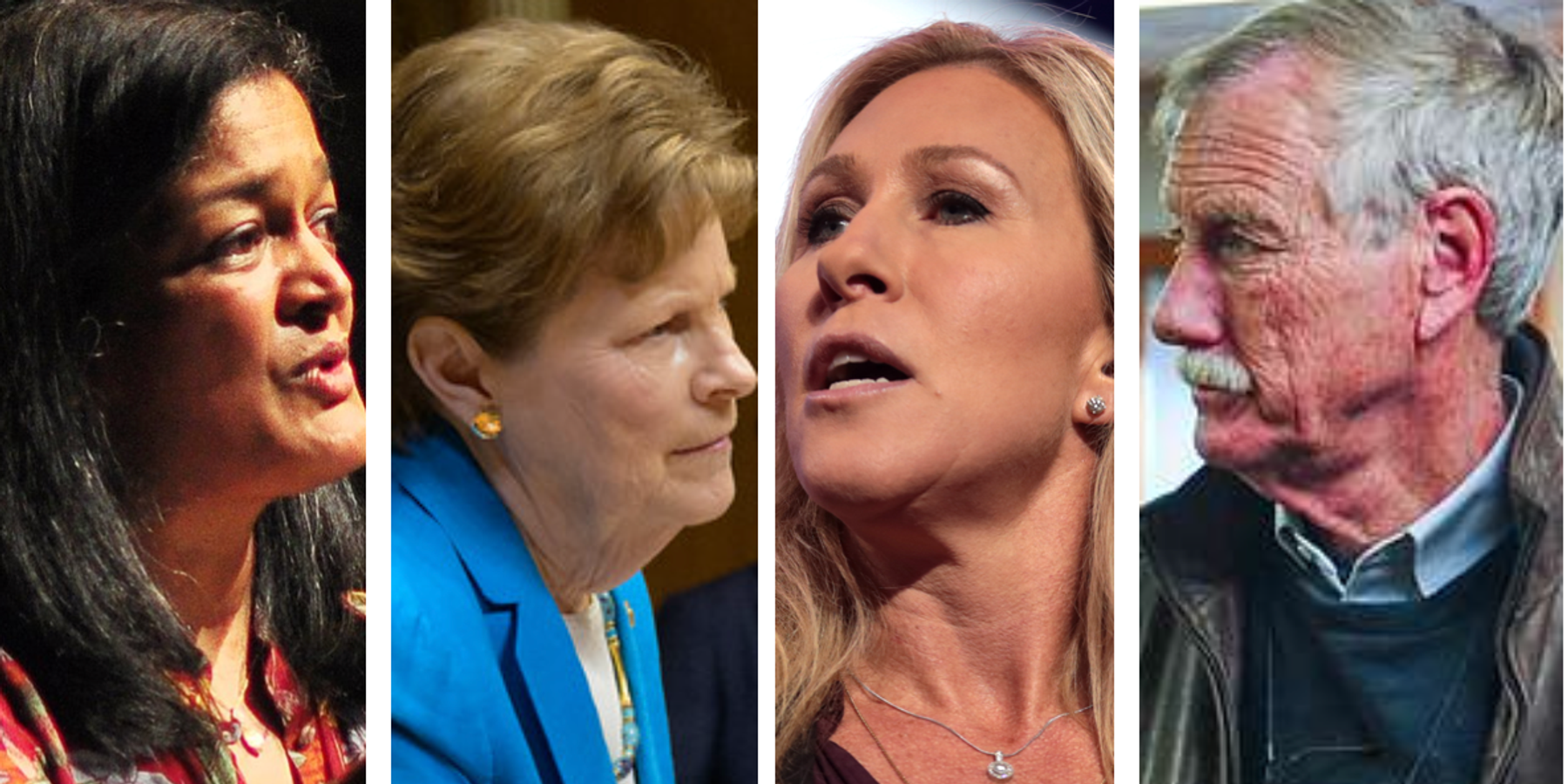U.S. lawmakers who may have been silent for the last 22 months are now speaking out publicly and blaming Israel for the starvation and famine conditions in the Gaza Strip.
On CBS’s Face the Nation this Sunday, Sen. Jeanne Shaheen (D-N.H.), Ranking Member of the Senate Committee on Foreign Relations and long-time Israel supporter, slammed Jerusalem for Gaza’s growing humanitarian crisis, declaring that "Israel is starving Palestinians with impunity.” Gazans are “systematically being starved to death because Israel is refusing to allow in the humanitarian aid that people need to keep alive,” Shaheen said.
When Brennan asked whether Shaheen should have spoken out earlier she replied, “We should be doing more and we should have done more… not just democrats, but also Republicans.”
Going further than Shaheen, 14 U.S. lawmakers have called Israel’s war on Gaza a genocide to date, including 13 Democrats and one Republican.
Those lawmakers are Reps. John Garamendi (D-Calif.), Al Green (D-Tex.), Marjorie Taylor Greene (R-Ga.), Pramila Jayapal (D-Wash.), Hank Johnson (D-Ga.), Summer Lee (D-Pa.), Betty McCollum (D-Minn.), Alexandria Ocasio-Cortez (D-N.Y.), Ilhan Omar (D-Minn.), Mark Pocan (D-Wis.), Ayanna Pressley (D-Mass.), Delia Ramirez (D-Ill.), Rashida Tlaib (D-Mich.) and Bonnie Watson Coleman (D-N.J.).
To that end, Rep. Marjorie Taylor Greene (R-Ga.) — the first Republican to do so — has been front and center.
"I don't know about you, but I don't want to pay for genocide in a foreign country against a foreign people for a foreign war that I had nothing to do with," Greene said on X on Saturday. "And I will not be silent about it."
While stopping short of calling Israel’s actions a “genocide,” others have also turned up the heat and have called for halting U.S. weapons aid to Jerusalem until it reverses course.
“Israel’s actions in the conduct of the war in Gaza, especially its failure to address the unimaginable humanitarian crisis now unfolding, is an affront to human decency,” Rep. Angus King (I-Maine) declared in a statement at the end of last month. He said he would no longer support aid to Israel, “until there is a demonstrable change in the direction of Israeli policy.”
Rep. Adam Smith (D-Wash.) wrote on X back in May: “Since the limited ceasefire ended in March, Israel has blocked the entry of humanitarian aid into Gaza. Israel must restart the flow of humanitarian aid into the region.” On Monday, is office released a lengthy statement that demanded Israel release more aid and stop the expansion of settlements in the West Bank. He also suggested that he would support some ban on U.S. weapons to Israel if these things are not done.
"I urge President Trump to directly appeal to Prime Minister Netanyahu and the Israeli government to take these steps. If Israel does not take these steps, I believe it is time for the United States government to stop the sale of some offensive weapons systems to Israel as leverage to pressure Israel into taking these actions," he said.
Around the same time in May, 30 Democratic lawmakers signed a letter in May calling on President Trump to ask Israeli Prime Minister Benjamin Netanyahu, specifically, to address Gaza’s humanitarian crisis.
“It is critical that Israel enables entry of lifesaving humanitarian aid into Gaza. We respectfully urge [Trump] to call on Prime Minister Netanyahu to immediately address this humanitarian crisis and promote lasting peace,” they wrote.
But other lawmakers continue to toe the line. Along these lines, Elissa Slotkin (D-Mich.) and John Thune (R-S.D.) have expressed concerns for Gaza’s hunger crisis, but stopped short of blaming Israel for it.
And although Katherine Clark (D-Mass.), the Minority Whip and No. 2 Democrat in the House of Representatives, had called Israel’s war on Gaza a genocide earlier this month, she walked back that statement in a subsequent interview, prompting AIPAC to reaffirm its support for her.
Time will tell whether changing attitudes will meaningfully impact the U.S. approach to Israel’s war on the Gaza Strip. For now, that issue is the focus of ongoing party and policy debates as Americans become increasingly critical of the offensive. For example, recent Gallup polling found only 8% of Democrats support the war, perhaps prompting the Democrats’ political shift. Another found that only 22% — both Republicans and Democrats — believe what Israel is doing in Gaza can be justified as "self defense."
Indeed, more Democrats than before voted for Sen. Bernie Sanders’ (I-Vt.) recent round of Joint Resolutions of Disapproval (JRDs) to block arms sales to Israel, although the measures ultimately failed. And the Democratic National Convention (DNC) is expected to vote Tuesday on two key Gaza-related resolutions, where one calls for a ceasefire and for Hamas to return hostages, while the second calls for a commitment to suspending aid to Israel, and for supporting a Palestinian state.
- The Democrats who flipped on Israel aid, and why ›
- US lawmakers spending summer break with AIPAC touring Israel ›
- Poll: 41% of Americans say Israel committing genocidal acts in Gaza | Responsible Statecraft ›
















